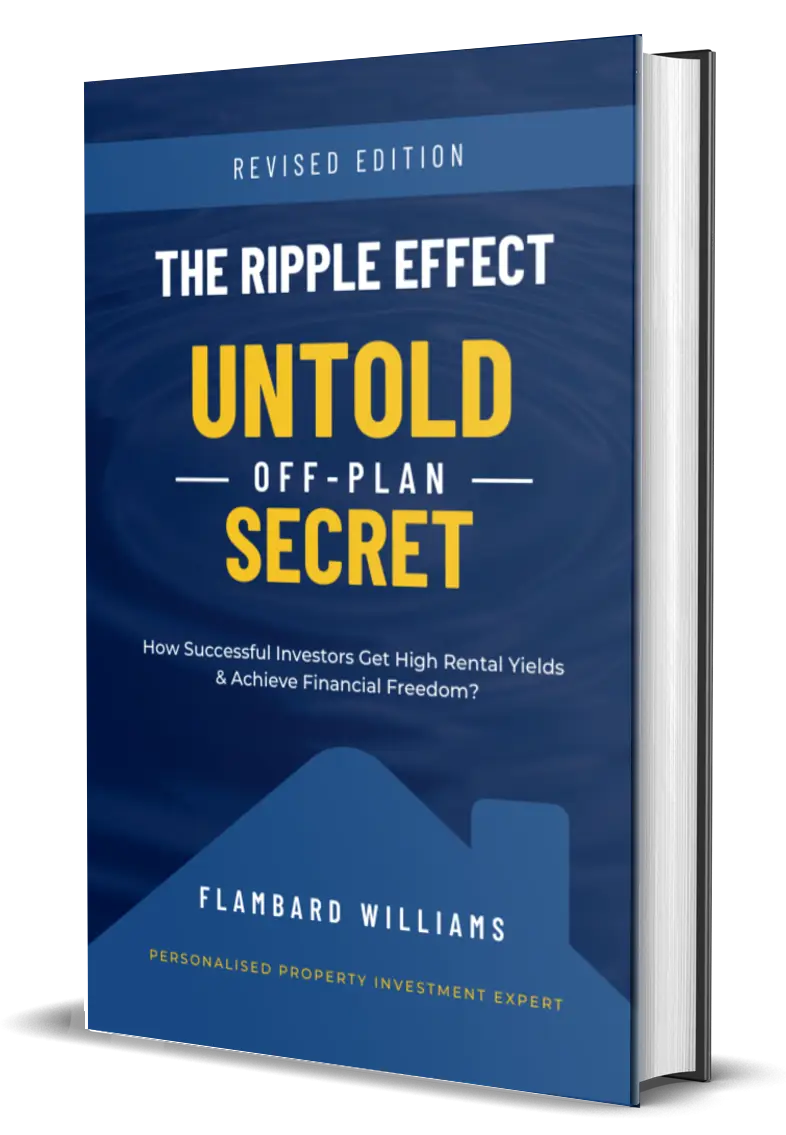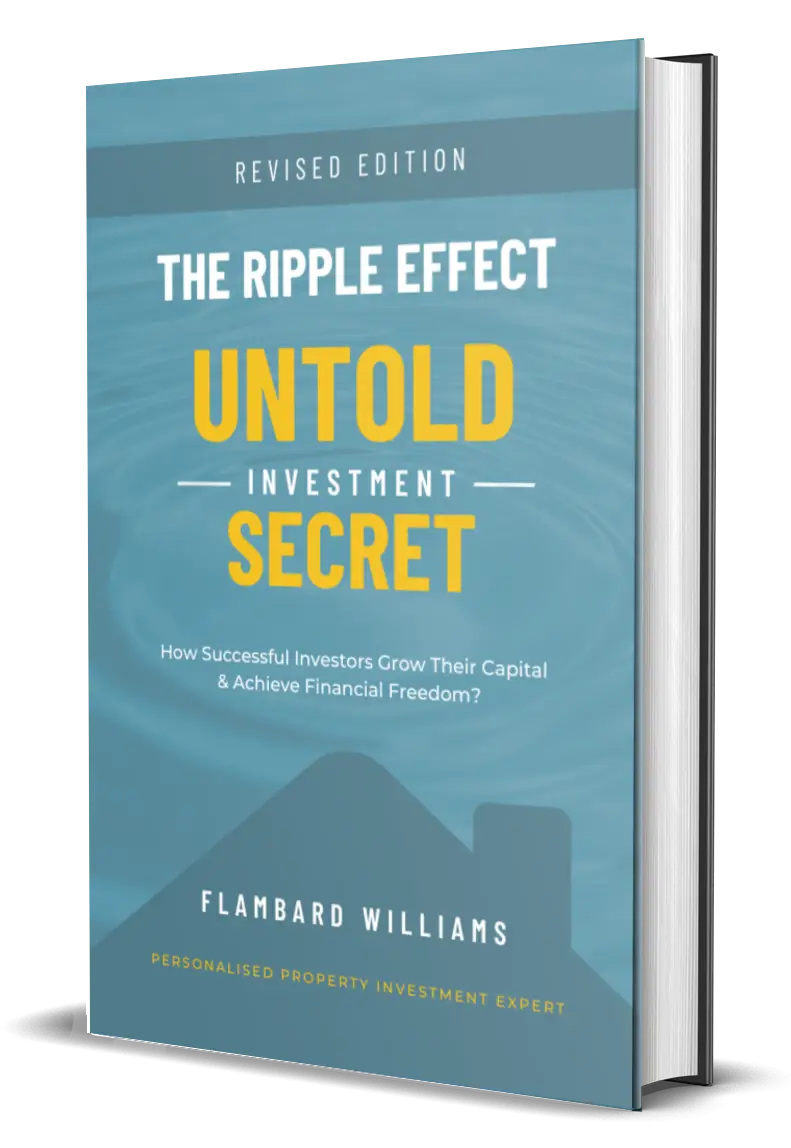Table of Contents
Table of ContentsToggle Table of ContentToggle
Let’s talk about why Birmingham is absolutely buzzing for short-term rentals. A few years back, we were testing the waters with a buy-to-let property, and to be honest, we had no idea just how popular short-term lets would become in this city. It’s not just about tourists on a weekend getaway—it’s business travellers, students, and even families in town for big events. Birmingham’s become a bit of a hot spot, and with short-term letting platforms like Airbnb growing by the minute, there’s never been a better time for you to dive in.
From our experience, having a short-term rental here has been a fantastic way to generate passive income. But trust us, it’s not as simple as throwing a property on Airbnb. You’ve got to think about things like location, regulations (Birmingham does have its own set of landlord licensing rules), and how to keep up with guest demands.
Investors make mistakes along the way, like underestimating the demand during busy times, such as the Birmingham Commonwealth Games!
It costs them, but you need to always keep an eye on the local events and price accordingly.
Birmingham city centre offers a wealth of attractions and amenities for short-term rental guests, from the vibrant Bullring Shopping Centre and historic Jewellery Quarter to family-friendly spots like the National Sea Life Centre, Birmingham Science Museum, and lush Sutton Park; combined with stylish serviced apartments and self-catering accommodation options, visitors can enjoy modern amenities like laundry facilities, proximity to Birmingham Cathedral, and easy access to stylish apartments in Birmingham’s top areas.
Birmingham serviced apartments, especially those in prime locations like the Birmingham Jewellery Quarter and other top neighborhoods in the West Midlands, provide excellent options for visitors seeking quality apartments in Birmingham, as serviced apartments offer convenience, flexibility, and a home-like experience for both business and leisure travelers.
Why is Birmingham a Top Location for Short-Term Lets?
When one of our investors first bought a flat near Birmingham New Street Station, he thought it’d just be a good long-term rental. Fast forward a couple of years, and he realised the demand for short stays was incredible. People want flexibility, and Birmingham city centre gives that—whether they’re here for a quick business trip or to explore the city’s rich history.
For investors like you, Birmingham is a goldmine. It’s cheaper than London. But you still get a solid return on investment. We remember researching rental yields, and in certain areas like the Birmingham City Centre and Digbeth, short-term lets can easily outperform traditional rentals.
Plus, If you are flying into Birmingham Airport, a convenient shuttle service runs directly to Birmingham International Station, allowing you to reach the city centre and settle into your apartment within minutes. Guests came from everywhere—business travellers, tourists, and even people just passing through for a night or two. The variety of guests alone is one of the reasons Birmingham is such a sweet spot for short-term property investments.
Overview of Birmingham’s Economy and Tourism Industry
Birmingham’s economy is absolutely thriving, and that is one of the biggest reasons short-term rentals have taken off here. We are talking about a city that is no longer just about its industrial past. It is now a centre for finance, tech, and creative industries. HSBC moved its UK headquarters here, and companies like Deutsche Bank have set up shop, which means more business travellers needing affordable accommodation.
Then there’s the tourism side of things. Birmingham sees around 40 million visitors a year—that’s no small number. Big events at the NEC, the Bullring for shopping, and places like the Birmingham Museum & Art Gallery bring in tonnes of tourists. Many investors had their Birmingham serviced apartments rented out for two solid months during the Commonwealth Games, and it was booked out months in advance! The demand is just crazy, and with the city’s growing economy, this isn’t slowing down anytime soon.
Property Listing in Birmingham
- Birmingham
Deposit
.
Yield
Property Price
.
Growing Demand for Short-Term Accommodation from Business Travellers and Tourists
Business travellers are honestly a dream when it comes to short-term lets. They’re in and out quickly, don’t make much of a mess, and are usually happy to pay a bit more for a great place with good free Wi Fi and proximity to business hubs. Our investors had a few properties near Broad Street and the Jewellery Quarter, which are prime areas for corporate stays. Most of the time, these guests book during the week, filling in the gaps left by weekend tourists. It is found that offering things like a workspace and fast internet really boosts bookings from the business crowd.
On the flip side, tourists are looking for a more ‘Birmingham’ experience. When one of our investors rented out a flat near the Birmingham Hippodrome, the demand was sky-high during theatre season. Tourists love being close to attractions, and they’re willing to pay a premium for convenience. Having properties in different areas has really helped cater to both markets—business during the week, tourists on the weekends. It’s all about maximising occupancy rates, and Birmingham, with its mix of business and leisure travellers, makes that pretty easy.
Key Neighbourhoods in Birmingham Ideal for Short-Term Lets
When it comes to choosing the right neighbourhoods for short-term lets in Birmingham, location is everything. In our experience, Birmingham City Centre is a no-brainer. You’ve got the proximity to Birmingham New Street Station, plenty of history and culture, and more restaurants and bars than you can count.
It is a guaranteed hit with tourists. Business travellers love it because they can hop on a train or head to meetings without much hassle.
Another area investors had great success with is Digbeth. It’s got this edgy, artsy vibe that really appeals to younger travellers, especially those who want to explore Birmingham’s more alternative side. Prices are still reasonable there, but they’re creeping up as the area becomes more popular. There’s also Selly Oak, which is perfect if you’re looking to tap into the student and academic market—thanks to the Birmingham University. It’s less flashy than the Birmingham City Centre but still delivers strong returns, especially during graduation season.
Sutton Coldfield is more of a residential area, and it’s great for families visiting for events or just wanting a quieter spot. The key to doing well in properties here is to match the area with the type of guests you want—each neighbourhood has its own vibe, and finding that fit can really make a difference.
Major Upcoming Infrastructure Projects That Will Increase Demand
Birmingham city centre is on the cusp of some huge infrastructure projects that are set to boost short-term rental demand even more. HS2 is the big one. When this high-speed train is fully operational, it’ll cut the journey to London down to 45 minutes, which is a game-changer for both tourists and business travellers. We’ve already noticed the impact on property prices in areas near the new Curzon Street Station, and demand is only going to rise. You should seriously consider snapping up another comfortable accommodation in the area before prices go through the roof.
Then there’s the Birmingham Smithfield development. It’s a massive project that’s going to add thousands of new homes, retail spaces, and entertainment venues to the Birmingham City Centre. We think this is going to have a huge ripple effect on short-term rental demand. Once the area is developed, you can bet it’ll become one of the most sought-after spots for both tourists and business travellers. If you’re looking for long-term capital appreciation alongside your short-term rental income, keeping an eye on these projects is a smart move.
Why Should You Be Investing in Short-Term Lets in Birmingham?
Investing in short-term lets in Birmingham has been one of the best decisions our investors have made, both for generating passive income and growing their property portfolios.
There are some huge benefits compared to traditional long-term rentals, especially if you are strategic about it. From higher rental yields to tax advantages, the potential is immense, especially in a city like Birmingham city centre that’s booming with tourism and business travel. If you like and enjoy the flexibility of managing your property, short-term lets might be exactly what you’re looking for.
Higher Rental Yields
The main reason our investors pivoted towards short-term lets was the potential for higher rental yields.
For instance, during peak periods like major events or holidays, we have managed to double our investor’s usual rental income.
It is not all sunshine—there are gaps between bookings, and the constant need to keep the place in top shape. But even with the occasional vacancy, our short-term rentals in central Birmingham have outperformed long-term lets, especially when we cater to business travellers during the week and tourists on the weekends.
Flexibility and Control Over Property Use
If there’s one thing we really appreciate about short-term lets, it’s the flexibility. With a long-term tenant, you are tied down for at least six months or more, and once they’re in, it’s hard to make changes.
But with short-term rentals, you have total control. You can block off dates if you need the property for personal use, make updates and improvements without waiting for a lease to end, and adjust pricing based on demand.
There is also the freedom to test out different rental strategies.
One of our investors once shifted focus from tourists to business travellers and saw an increase in midweek bookings. You can not do that with a traditional rental. Having that flexibility has allowed him to maximise income while keeping the property in great condition, ready for future opportunities.
Tax Advantages
Here is where it gets even better; the tax benefits. When investors first start, they don’t realise how many tax advantages come with running a short-term rental. In the UK, if you rent out a furnished property, you can deduct expenses like maintenance, cleaning, insurance, and even things like bedding and kitchenware.
And trust us, those costs add up when you’re managing a short-term rental, but they’re worth it.
One tip keep a clear record of everything. We’re talking receipts, invoices, the whole lot. Also, if you meet certain criteria, you can benefit from the Furnished Holiday Let tax rules, which are more favourable compared to traditional buy-to-let properties. It’s a great way for you to reduce your taxable income and keep more of your profits.
Potential for Higher Appreciation in Booming Neighbourhoods
If you’re in property investment for the long haul, appreciation is just as important as rental income. Birmingham is growing at a rapid pace, and some neighbourhoods are experiencing serious property value increases. Our investor got one flat in Digbeth that’s almost doubled in value since he bought it a few years ago, and the rental income has been fantastic too. Areas around the HS2 rail project and the Birmingham Smithfield development are where you want to focus if you’re eyeing capital appreciation.
These booming neighbourhoods are transforming fast, and being an early investor can pay off. What we love about short-term lets in these areas is that not only do we get high occupancy rates now, but we’re also sitting on assets that are gaining value year after year. It’s a win-win for investors.
Birmingham’s combination of a thriving economy, booming tourism, and massive infrastructure projects is setting the city up as one of the best places for short-term rental investments. With the potential for higher rental yields, greater flexibility, and long-term appreciation, this is an opportunity you don’t want to miss out on. Whether you’re just starting or expanding your portfolio, Birmingham’s short-term rental market is full of promise for smart investors.
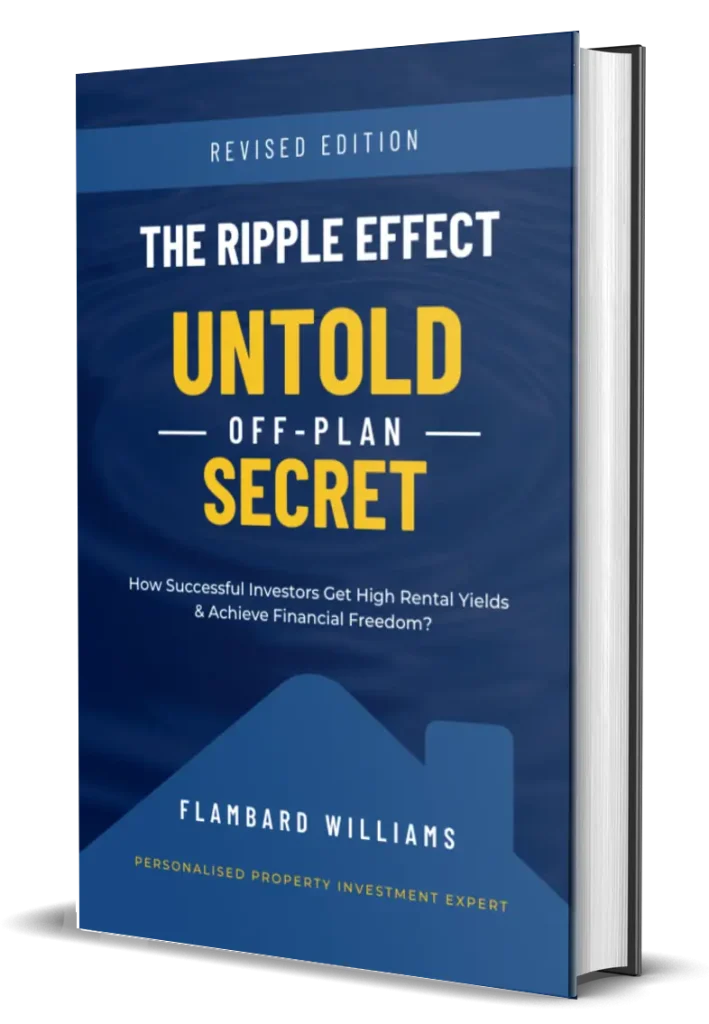
Initiate a powerful sequence of your property growth and reinvestment.

Initiate a powerful sequence of your property growth and reinvestment.
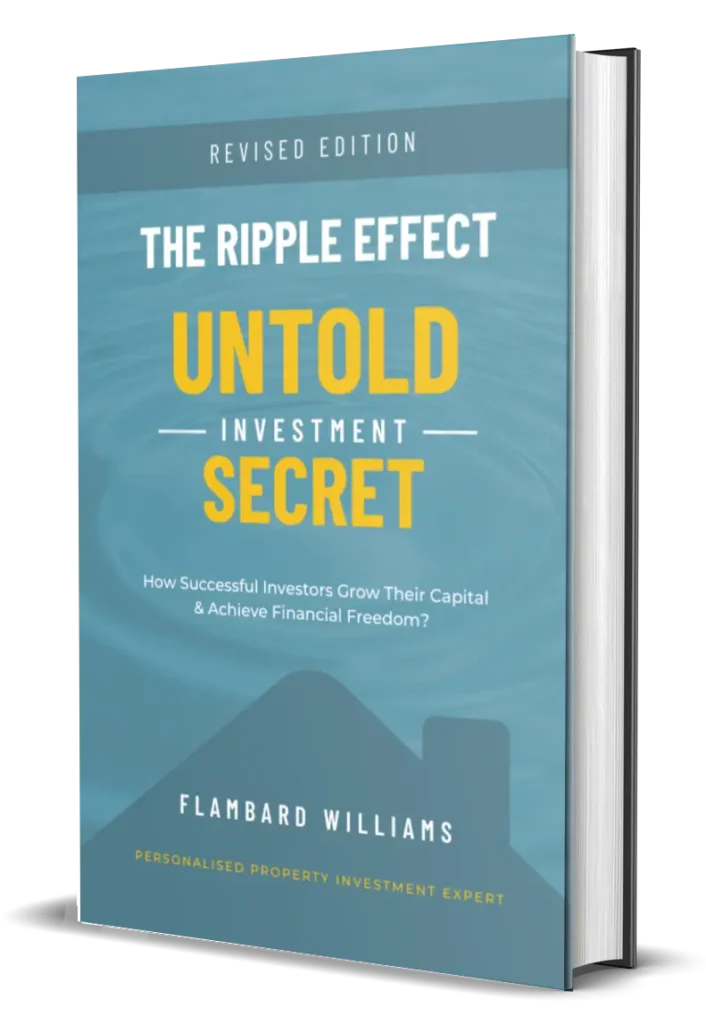
Unleash how successful investors build wealth, reduce financial stress, and achieve financial freedom.
How to choose the right property for short-term letting in Birmingham?
It is not just about buying any flat and putting it on Airbnb. The location, size, and amenities you offer can make or break your success in this market.
And with competition growing, especially in hot areas like the Birmingham City Centre, you have got to be smart about where and what you invest in. Here is what we have found works best.
Factors to Consider: Location, Property Size, and Amenities
Location is king—seriously, nothing beats it. Rose, one of our investor’s first investment was a one room flat just outside the Birmingham city centre, and while it was fine for long-term tenants, it did not perform as well with short-term guests. She realised people want to be close to the action, near things like Birmingham New Street Station, Broad Street, or the Bullring. If your property is more than a 10-minute walk from major attractions, you might struggle with occupancy.
Size is also key. Studio flats are great for solo travellers or couples, but if you can invest in a two-bedroom property, it opens up your audience to families or business groups.
Guests want comfort, and small touches like quality bed linen or even a coffee machine can lead to glowing reviews and repeat bookings.
People love having a bit more space. As for other amenities, things like fast and free WiFi, a washer/dryer, and a well-equipped kitchen can set you apart from the competition.
Understanding Guest Preferences. What Tourists and Business Travellers Want?
Tourists and business travellers have very different needs, and understanding those can give you a serious edge. Tourists are all about the experience. They want to be close to attractions, restaurants, and cultural spots.
They will pay a little more for a property near the Birmingham Museum & Art Gallery or Victoria Square. Business travellers care more about convenience and practicality.
Corporate guests are always looking for strong WiFi, a comfortable desk space, and proximity to business hubs like the Colmore Business District or Broad Street.
They book during the week, so keeping your calendar open for midweek stays can really boost your occupancy rate. Cater to both groups, and you will have back-to-back bookings year-round.
The Importance of Proximity to Transport Links, Birmingham City Centre, and Key Attractions
When we say location is everything, we are mainly talking about proximity to transport links and attractions. We have had properties within a 10-minute walk of Moor Street Station and Birmingham New Street, and they have consistently outperformed those further out. Easy access to transport is non-negotiable for business travellers, and tourists love being able to hop on a train or bus without a hassle.
Being close to key attractions like the Birmingham Hippodrome or the University of Birmingham makes a huge difference too. It is an easy way to boost your property’s appeal and justify higher nightly rates.
If you’re in the Chinese Quarter, don’t miss out on the great food and vibrant drink scene. Birmingham’s culinary scene and nightlife will keep you entertained throughout your stay.
Evaluating Local Competition and Occupancy Rates
Before jumping into any property, it is vital to check out the local competition. When investors start out, they do not pay enough attention to this, and flat in a saturated area struggle with occupancy. Always do a deep dive into platforms like Airbnb or Booking.com to see what similar properties are charging and how often they are booked. If an area is flooded with options, it might be harder to keep your place filled year-round.
Occupancy rates fluctuate based on season, local events, and location. Birmingham has high demand during the week from business travellers, and weekends are generally strong thanks to tourism. However, do not assume every property will stay booked.
You have got to understand the market and tailor your pricing to keep up with local trends. In our experience, investing in areas with moderate competition but high demand, like Digbeth or Selly Oak, has given us the best returns.
The city is home to iconic venues like the International Convention Centre, Utilita Arena Birmingham, and the Barclaycard Arena. Making it a popular choice for those attending concerts or events. For those looking for relaxation, the Fitness Centre and the Electric Cinema offer great ways to unwind.
Legal and Regulatory Considerations for Short-Term Lets in Birmingham
If you are getting into short-term rentals in Birmingham for the first time, you will get overwhelmed by the legal side of things. You will assume it is as simple as listing a property and collecting bookings, but there are a lot of rules to follow.
Birmingham has specific regulations that short-term landlords need to be aware of. If you do not follow them, it will cost you big time. From local council regulations to landlord licensing, it is essential to stay on top of these to avoid fines or worse.
Local Council Regulations on Short-Term Rentals
One thing we learned early on was that the local council in Birmingham takes short-term lets seriously. There are limits on how many nights you can rent out your property without needing to register for planning permission. Generally, if you are renting for more than 90 days a year, you might need to get formal approval. A friend of ours ran into issues because they did not check with the council first and got hit with a hefty fine.
Birmingham’s regulations can vary depending on the area. You must check with your local authority. And if you are thinking of running multiple short-term lets, you may even need a different type of licensing, so do your homework.
Health and Safety Standards for Short-Term Lets
Health and safety is one of those things you cannot overlook with short-term lets. When our investors first started, they did not realise the importance of things like fire safety regulations and providing things like fire extinguishers and smoke alarms.
You need to make sure your property complies with the Housing Health and Safety Rating System (HHSRS).
Trust us, you do not want to wait until something goes wrong to realise you are not compliant.
There are also rules around electrical and gas safety. We have got all our properties on an annual check schedule to avoid any last-minute surprises.
Your guests need to feel safe. If something happens and you are not prepared; you could face serious legal trouble.
Planning Permission Requirements and Potential Zoning Restrictions
Planning permission is not always required for short-term lets in Birmingham, but in some cases, it is unavoidable. Some areas have specific rules about how properties can be used, and switching from a long-term rental to short-term letting can require permission.
You have to go through the process, and while it is not too complicated, it will delayed your launch by a few months.
It is always best to check if the area where you are investing in has zoning restrictions or not, if it does then this could prevent you from letting short-term.
If your property is in a conservation area or a residential-only zone, for example, you could face challenges getting permission.


Angel Gardens is located in an up-and-coming district of Liverpool. It is in close proximity to two major regeneration projects: the £150 million Project Jennifer and the £5.1 billion Liverpool Waters scheme.
Cash Needed
Rent per month
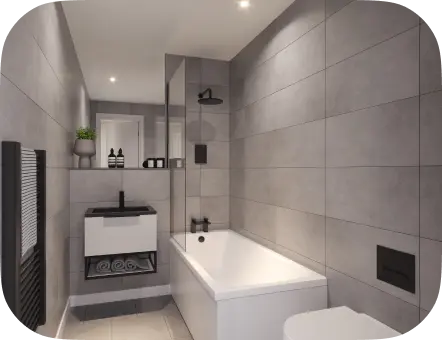
Limited Units

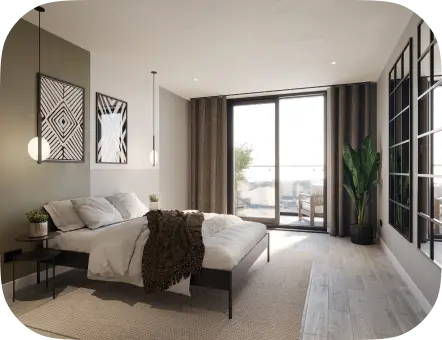
£185k
Landlord Licensing and Insurance Considerations
In Birmingham, many areas require landlords to have a landlord licence, especially in areas with selective licensing.
This licence is designed to ensure that landlords meet certain standards when it comes to the condition of the property and how they manage their tenants, including short-term ones.
Insurance is another thing you do not want to overlook. Standard home insurance would not cover short-term lets, so you need to make sure you have short-term rental insurance. One of our investors made this mistake once, and when a guest accidentally flooded the bathroom, they were not fully covered. Now, they always make sure our properties have the right insurance in place, it is a lifesaver.
Maximising Your Rental Income and Occupancy Rates
Once you have got the legalities sorted, the next step is maximising your income and keeping those bookings rolling in. Trust us, it is not enough just to have a great property in a prime location—you have got to be strategic.
We have had to tweak our pricing, adjust for seasonal demand, and improve the guest experience over time to keep our short-term rentals competitive. Here is what we have learned about keeping those occupancy rates high and your income steady.
Pricing Strategies: How to Price Your Property Competitively?
Pricing is one of the trickiest parts of managing short-term lets. If you price too high, you will scare away potential guests, but if you price too low, you are leaving money on the table. We have experimented a lot with different pricing strategies. One thing that works well is dynamic pricing—where your rates automatically adjust based on demand.
Tools like Airbnb’s smart pricing can help, but also keep an eye on local events too, like concerts or conferences at the NEC, and bump up your prices accordingly.
Offering discounts for longer stays (like 5% off for week-long bookings) keeps your occupancy rates up during slower periods. And do not forget to check out your competition—look at similar properties in your area and see what they are charging.
Just lowering your rate by £5-10 per night can give you the edge.
Seasonal Trends and Demand Fluctuations in Birmingham
Birmingham has a pretty predictable seasonal trend when it comes to short-term rentals.
During the summer months when tourism peaks. We have noticed a lot more holidaymakers booking our properties. However, it is during big events, like the Christmas market or the Commonwealth Games, when we see a real spike in demand. During these times, you can nearly double your nightly rates—and people still book!
But it is not always high season. January and February can be pretty slow, especially for tourists. To get around that, try to target business travellers more during those months. Offering midweek deals or targeting long-term stays from corporate guests can help keep your occupancy rate steady, even when demand drops.
Use Online Platforms (Airbnb, Booking.com, etc.) for Better Visibility
They do all the heavy lifting when it comes to marketing and attracting a wide audience.
Using Airbnb and multiple platforms increased our occupancy rates significantly. More eyes on your property mean more bookings, plain and simple.
Each platform has its quirks. On Airbnb, photos and reviews are crucial—so make sure your property looks its absolute best and your guests leave great reviews. Booking.com is more business-focused, so highlight features like strong WiFi and a workspace. And while each platform takes a cut, the exposure they provide is worth it, especially if you are trying to fill up a calendar.
Tips for Offering a Standout Guest Experience (Reviews, Amenities, etc.)
Great guest experiences lead to great reviews—and those reviews will make or break your short-term rental. We make sure every guest feels like they are getting the best service, whether that is with a quick reply to their messages, leaving a welcome basket, or offering little extras like premium bed linen or a coffee machine. It is those small details that get people talking.
Amenities plays a very important role. Fast WiFi, a comfortable mattress, and a clean, modern private bathroom will always get you points. Start offering streaming services like Netflix. And do not forget the basics, like leaving clear instructions for check-in, how to use the appliances, and local recommendations.
Happy guests will leave good reviews which can help you to stand out in a crowded market.

Financing your short-term let property investment
Financing a short-term rental property can be a bit tricky, especially if you are new to the game.
When investors first start looking into buying their own Birmingham short-term let, they had to wade through all the different financing options. There’s more to it than just getting a traditional mortgage, and understanding your options early on can save you from headaches down the road. Whether it’s a buy-to-let mortgage or something more flexible, knowing what works best for your situation is key.
Different financing options for purchasing a short-term rental property.
When it comes to financing a short-term rental property, you have got a few routes to choose from. Most people look at buy-to-let mortgages, which are specifically designed for investment properties. We went down this route with our first flat, and while it worked out in the long run, there are other options like bridging loans and even property crowdfunding if you are looking for something more flexible or short-term. Bridging loans, for example, are great if you are planning on buying a property that needs a quick refurb before listing it as a short-term let.
Another option is using a personal loan if you are not quite ready for the commitments of a mortgage, but this usually comes with higher interest rates. You will want to carefully weigh these choices because picking the wrong financing can eat into your profits.
Pros and cons of buy-to-let mortgages for short-term lets.
Buy-to-let mortgages are the most common financing option, but they come with their own set of pros and cons. The biggest advantage is that these mortgages are designed for rental properties. Lenders are more comfortable approving you if they know you will be making an income from the property.
The interest rates are usually lower than other types of loans, and you can often borrow up to 75% of the property’s value.
The downside? Some lenders are not keen on short-term lets. Plus, buy-to-let mortgages often require higher deposits—sometimes up to 25%—so it is not the easiest entry point if you are short on capital.
Understanding the impact of interest rates on your ROI.
Interest rates can make or break your return on investment (ROI), so it is something you really need to pay attention to. When one of our investors got her first mortgage, she was so focused on getting the property that she did not fully consider how fluctuating rates could impact our income. If the rates go up, which they often do, your mortgage payments increase, cutting into your profits.
Currently, the interest rates are a bit higher than they were a few years back. If you are on a variable-rate mortgage, your monthly payments could shift unpredictably. That is why locking in a fixed-rate mortgage might be a safer bet, especially if you are planning to hold onto the property for a while.
It gives you stability and lets you plan your rental income more effectively. Even a small shift in interest rates can turn what seems like a great investment into something barely breaking even, so it’s crucial to calculate these costs early on.
Managing your short-term let in Birmingham.
Managing a short-term rental can be as hands-on or hands-off as you want it to be, but there are pros and cons to both approaches. Self-managing your first property and then hiring a property management company for the second; each has its own challenges. If you are trying to decide which route to go, consider how much time you have and whether you are ready to deal with the constant stream of bookings, guest inquiries, and property maintenance that comes with the territory.
Should You Hire a Property Management Company or Self-Manage?
This is the big question for most of investors—should you go for self-manage or hire a property management company? At first, most of our investors thought self-managing would save us money, but they quickly realised it takes a lot of time. They were constantly dealing with guest inquiries, late check-ins, and last-minute maintenance issues. They barely had any free weekends.
Having a reliable property management company can take a huge load off your shoulders. Yes, estate agents charge around 10-15% of the rental income, but they handle everything, from guest communication to cleaning and even maintenance. The peace of mind was worth the cost, especially since they help to boost your occupancy rates by optimising your listing. It is worth it if you are juggling multiple properties or have a busy schedule, but if you enjoy being hands-on and have the time, self-managing can save you money in the long run.
The Importance of Professional Cleaning and Property Maintenance
Many investors quickly realise that cleaning and property maintenance can make or break a short-term let. One bad review because of cleanliness can tank your listing, and trust us, guests are picky.
Initially, you will think you can handle the cleaning yourself to save on costs, but after a few months, you will realise it was not sustainable. You have to hire professional cleaning service, and the difference in guest satisfaction will be immediate.
Regular maintenance is also key. Once you have a guest complain about a leaky faucet, and by the time you get it fixed, it is mentioned in the review. Property agents like Flambard Williams make sure to do monthly checks to ensure everything is in tip-top shape. It is those little things—like replacing worn-out bedding or touching up paint—that keep your property looking fresh and keep the 5-star reviews coming.
How to handle bookings, cancellations, and guest inquiries?
If you are self-managing, handling bookings, cancellations, and guest inquiries can feel like a full-time job. There are guests who cancel last minute, others who ask a million questions before booking, and some who need assistance during their stay. Being prompt with responses is crucial—most platforms like Airbnb actually rank your property based on your response time, so you cannot let inquiries sit for long.
Having a clear cancellation policy is very important. Having a flexible cancellation policy, especially during busy seasons, can lead to lost revenue. Now, we stick to a moderate policy; giving guests a refund if they cancel a few days in advance, but keeping the fee if they cancel last minute.
Ensuring compliance with safety regulations and guest security.
One of the biggest responsibilities of being a host is ensuring the safety and security of your guests. From fire alarms to carbon monoxide detectors, these safety features are not optional, they are legal requirements. When investors get started, they do not realise that they need a gas safety certificate for rental. They usually need to scramble to get it done before listing the property.
It is also worth considering security measures like smart locks or security cameras (for the exterior). These can help you monitor the property remotely and provide an extra layer of security for both you and your guests. Keeping your guests safe and your property compliant not only protects your investment but also enhances the guest experience, leading to better reviews and higher occupancy rates.

Long-Term Financial Planning for Short-Term Let Investors
Investing in serviced apartments offer some solid cash flow, but the real power lies in how you integrate it into a long-term financial strategy. It is not just about the next month’s income; it is about what these properties can do for our future, particularly in terms of retirement planning and portfolio building.
You need to know when to sell a property to maximise profit. The short-term let market is dynamic, but if you play your cards right, it can be a game-changer for your financial future.
Building a Property Portfolio, Diversification Strategies
When Mathew, one of our investors started investing, he put all his eggs in one basket—just one property in the Birmingham City Centre. It worked out well, but he soon realised that if he wanted to build real wealth, he needed to diversify. Diversification isn’t just about buying more properties—it’s about spreading risk. He now owns a mix of short-term lets in different areas, like Selly Oak for student accommodation and Digbeth for tourists. Each property attracts a different type of guest, which helps balance out seasonal fluctuations in bookings.
Another strategy he has used is diversifying property types. He has got a studio flat for solo travellers and a two-bedroom apartment that caters to families. Having a mix of locations and types of accommodation has not only increased his income but also reduced my risk if one market slows down. If you’re planning for the long term, spreading your investments across different areas and property types is essential.
How Short-Term lets Fit into Your Retirement Planning?
Short-term lets have become a key part to your retirement planning. The idea of relying solely on a pension just is not enough. The cash flow from short-term rentals, especially in high-demand areas like Birmingham City Centre, will allowed you to build a steady income stream that can supplement your retirement.
One advantage of short-term lets is that you are not tied down to long-term tenants, giving you the flexibility to adjust your property use as you age. You can plan to keep a few properties generating income for as long as possible, also you can sell them or convert them into long-term rentals when you retire. The flexibility of short-term lets gives you multiple options when planning for retirement.
Tax Planning and Long-Term Capital Gains Strategies
Tax is a huge part of any long-term financial plan, especially when it comes to short-term lets. The UK tax system can be tricky, but there are a lot of opportunities to reduce your tax burden if you know where to look.
If you are just starting, furnished holiday let status allows you to claim expenses like mortgage interest, utilities, and even furniture as deductions. This can significantly lower your tax bill.
As for capital gains tax, you have got to think about the long-term picture. When you eventually sell your property, any appreciation will be subject to this tax. With our help Mathew, our investor, found that spreading out the sales—rather than selling all at once—helps reduce the overall tax burden. You can also make use of your annual capital gains tax allowance to minimise the impact. Getting professional tax advice early on can make a world of difference in your long-term planning.
Exit Strategies, when and how to sell your property for maximum profit?
Knowing when and how to sell your property is crucial if you want to maximise your profit. We have seen investors hold onto properties for too long, they miss out on peak market conditions. You must keep an eye on market trends and future developments. With the HS2 project coming to Birmingham, property prices are expected to rise significantly in certain areas. We will advice our investors to sell their properties just before HS2 opens to capitalise on the demand.
Another thing to consider is the state of your property. If it’s in good condition and in a high-demand area, you can sell it as a profitable short-term let business. Some investors are willing to pay a premium for a property that’s already generating income. But if the market is slow or your property needs a lot of work, it might be better to hold onto it until the timing is right. Your exit strategy should be flexible enough to adapt to the market, but clear enough to guide your decisions.
Types of short-term accommodation.
Not all short-term lets are created equal, and the type of accommodation you offer can have a big impact on the kind of guests you attract. Whether it’s a cosy studio, a fully furnished apartment, or a high-end serviced apartment, each option caters to different needs and comes with its own pros and cons. Over the years, we’ve experimented with different types, and each one has its strengths depending on location, demand, and guest preferences.
Studios and Private Rooms
Studios and private rooms are great for solo travellers or couples who do not need much space. We have found that these are perfect for guests who are staying for just a few days, especially business travellers or tourists passing through Birmingham. Studio apartments in Birmingham are particularly easy to manage—they are smaller, so maintenance and cleaning are quicker, which is great for fast turnovers.
One of our investors’ studio flats near Moor Street Station is constantly booked by business travellers. It is not luxurious, but it is comfortable and convenient, which is exactly what these guests want. Modern Studios are also a good option if you are starting out and want to keep your costs low. But they may not bring in as much rental income as larger properties, so it is a bit of a trade-off.
Fully Furnished Apartments
They cater to a wider range of guests, including families, groups of friends, and long-term business travellers. One of our investor a two-bedroom apartment in the Jewellery Quarter, and it’s always in demand. Fully furnished apartments offer more space and flexibility, which means you can charge higher rates, especially if you provide modern amenities like high-speed WiFi and a fully equipped kitchen.
The downside is that these larger properties require more maintenance. You will need to invest in durable furniture and appliances. Regular maintenance is a must. The potential for higher rental yields is more. Having a fully furnished apartment, with modern design allows you to market the property to both short-term and long-term tenants, giving you extra flexibility.
Serviced Apartments
If you want to go the extra mile, serviced apartments are the way to go. These properties offer hotel-like amenities—think regular cleaning, concierge services, and sometimes even gym access. One of our investor had one serviced apartment near Broad Street, and while it required more upfront investment, the returns have been fantastic. Guests are willing to pay a premium for that extra level of convenience, especially business travellers who want something more homey than a hotel.
The main challenge with serviced apartments is the higher cost of operation.
You’ll need to either hire a property management company or be prepared to offer hotel-like services yourself, which can be time-consuming. However, if done right, serviced apartment can bring in higher rental income, and they often attract repeat guests who appreciate the convenience and comfort.
Neighbourhood Highlights
Let us dive into some of Birmingham’s most popular areas for short-term lets.
Bournbrook, a student hub.
If there is one thing Bournbrook is known for, it is students.
Right next to the University of Birmingham, it is a prime spot for short-term rentals, targeting students and academic visitors.
The demand in Bournbrook is consistent, but don’t expect long-term stays. It’s all about shorter, high-turnover bookings. The key here is to offer something affordable yet comfortable. Think studio flats or shared accommodation in Birmingham with decent WiFi and basic amenities. The rents may not be as high as in the City Centre, but the steady stream of guests makes it a reliable area for short-term letting.
City Centre, convenience and accessibility.
Birmingham City Centre is perfect for both tourists and business travellers because everything is within reach.
From Moor Street station and Birmingham New station to iconic landmarks like the Bullring and Victoria Square. Staying in the Birmingham City Centre means guests have the best of Birmingham on their doorstep. Our investors have had a few properties here, and while competition is fierce, the high demand more than makes up for it.
What they love about City Centre properties is that you can charge a premium, especially if the property is modern and close to transport links. The variety of guests is great too—tourists on the weekends, business travellers during the week. With easy access to railway stations and attractions just a stone’s throw away, Birmingham truly offers the best of both convenience and culture.
If you are looking for a short-term let that will stay booked year-round, the Birmingham City Centre is the way to go. Just be prepared for higher property prices and the occasional peak-season vacancy.
Edgbaston, Residential Comfort
Edgbaston is the perfect blend of residential comfort and proximity to the action. It is a quieter, more upscale area, which makes it popular with families and professionals looking for a peaceful stay. Edgbaston is great for longer stays, as guests appreciate the green spaces, quieter streets, and larger homes.
It is a bit removed from the hustle and bustle of the City Centre, but still close enough—about a 10-minute drive—to make it convenient for getting around.
The properties here are typically larger, so if you are renting out a house or a bigger apartment, Edgbaston is ideal. The neighbourhood’s close proximity to Edgbaston Cricket Ground and the Botanical Gardens makes it appealing for tourists, especially during cricket season. The presence of high-ranking schools attracts families visiting for extended periods. It is a solid choice for those looking to offer a more relaxed, residential experience.
Properties near these attractions, such as the Bullring Shopping Centre, Aston Hall, and Pen Museum, provide the best location to stay in Birmingham. Whether you’re booking a short stay or a longer visit with a large group, you’re sure to get the best price and enjoy complimentary tea.
Local attractions and their proximity to rentals
Let us take a look at some of the city’s top attractions and how proximity to them can benefit your short-term let.
Cadbury World, a sweet experience.
Located in Bournville, Cadbury World is a hit with families, especially those with young kids.
It is a full-on experience with interactive exhibits like a 4D cinema, and, of course, plenty of chocolate. If your short-term rental is in the Bournville area or even nearby in Selly Oak, you can expect a lot of interest from families visiting for this unique attraction.
Many investors have had guests book because their property are close to the Cadbury World. It is the kind of place where families plan entire weekends around the visit, so offering amenities like private parking and child-friendly features (think highchairs and a cot) can set you apart from the competition.
Birmingham Museum and Art Gallery.
If your property is located in or near the City Centre, being close to the Birmingham Museum and Art Gallery is a major selling point. This museum is a favourite among tourists, offering a range of art collections, from Pre-Raphaelite masterpieces to artefacts from Birmingham’s industrial past.
Visitors love to spend an entire day here, making it a must-see for culture enthusiasts.
If you have a flat or perfect apartment near Victoria Square, where the museum is located, you can easily market it to guests who want to explore the city’s art and history. Offering little touches like a guidebook or a list of nearby attractions adds extra value and can help boost your reviews.
Shopping Destinations.
Birmingham is a shopper’s paradise, with places like the Bullring and Grand Central drawing in visitors from across the country. Properties near these shopping hubs are always in demand, particularly for weekend stays. Guests love the idea of stepping out of their rental and into one of the UK’s largest shopping centres. If you have a property near the Bullring, and it remains constantly booked—especially around Christmas or during sales events.
Conclusion
Birmingham City offers property investors a fantastic opportunity to capitalize on the growing demand for short-term lets. The place offers you to invest in a cosy studio or a double bedroom apartment with spacious living. Along with this, the city’s central location guarantees strong returns.
Birmingham is the perfect destination for all the family, offering a wide range of attractions just a short walk from your holiday home. Whether you’re visiting the Museum and Art Gallery, exploring the National Sealife Centre, Birmingham Science Museum or experiencing the Industrial Revolution at the Black Country Museum, you’ll find plenty to do.
With a wide range of guests—from business travelers to tourists—Birmingham stands out among major cities. Its proximity to key attractions and transport links makes it ideal option for short-term rental investments, ensuring both high occupancy and long-term appreciation potential. Now’s the time to invest in this dynamic market.
Located near Birmingham New Street Station, with easy access to Birmingham Airport, our properties offer a comfortable and convenient stay for visitors exploring iconic attractions like the Birmingham Museum and the city’s renowned art gallery.

Area Guide
I’m Ben, I’ve worked as a senior broker here for quite a stretch, witnessing numerous success stories unfold!
















 Exclusive Property Launch Invitations
Exclusive Property Launch Invitations Customised Market Reports
Customised Market Reports Exclusive Access to Off-Market Properties
Exclusive Access to Off-Market Properties Networking Events
Networking Events